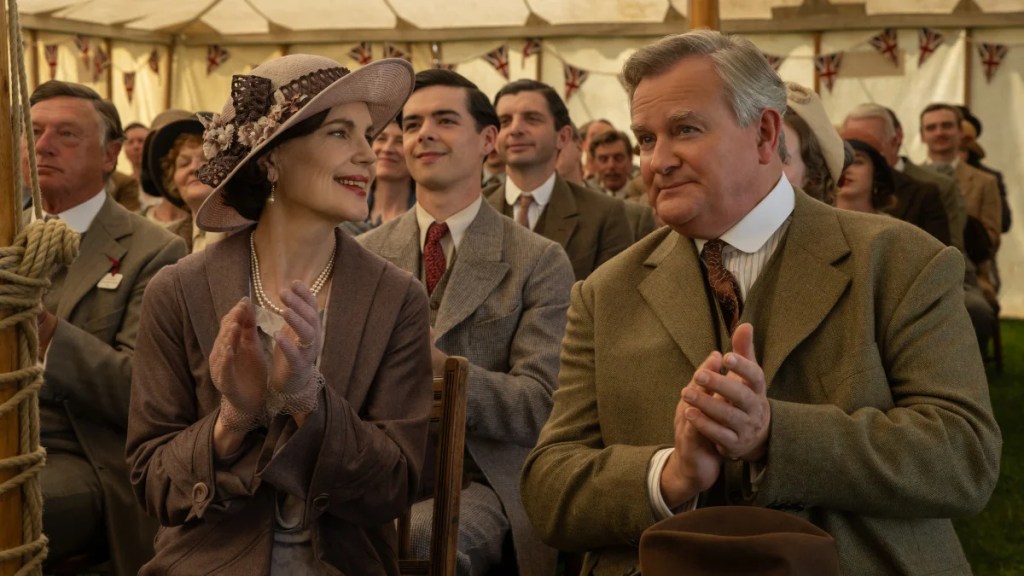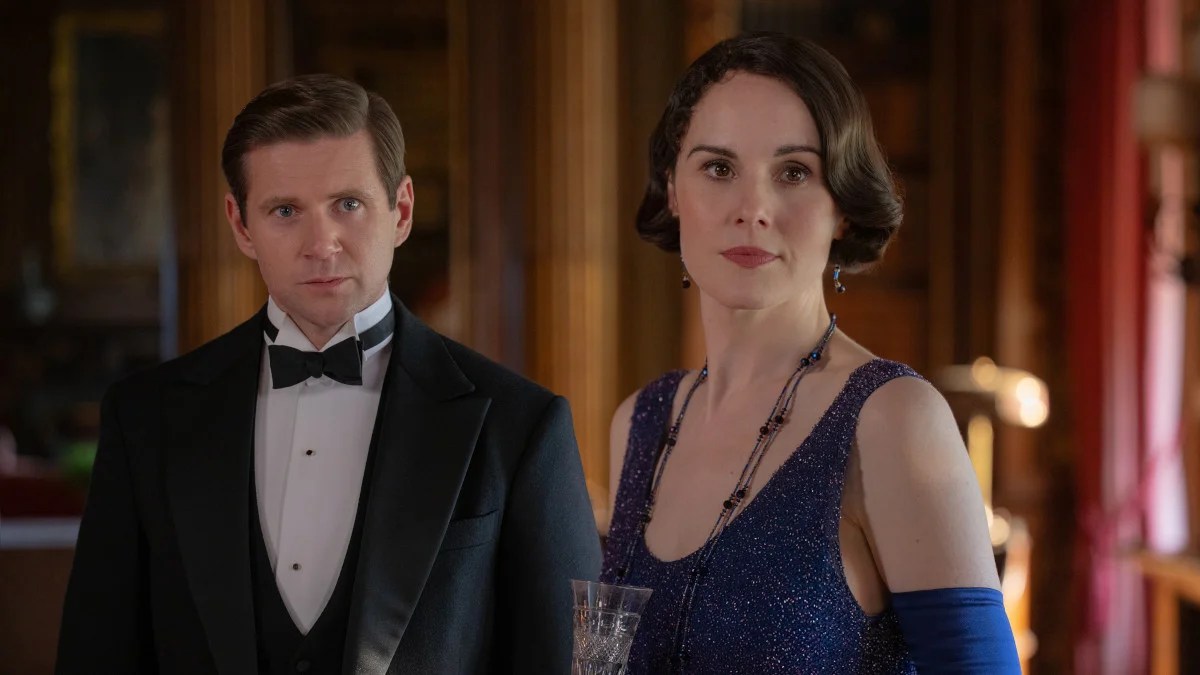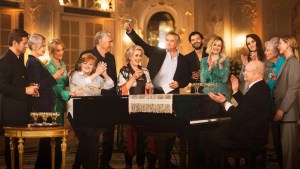There was a dream that was Downton.
Julian Fellowes created a lovely piece of escapist television with “Downton Abbey,” an upstairs/downstairs drama that relished the idea of a benevolent aristocracy and their wise, respectful servants living in harmony in the early 20th century. The upheaval didn’t come from class conflict but from changes in the surrounding world as Downton was just as likely to be rocked by World War I as they were by a new haircut or dress. But it was easy to embrace the fantasy of “Downton Abbey” with its soap opera turns next to mild plot stakes like “Who will win the Flower Show?!” However, the first two movies have struggled with how to translate the show to the big screen, attempting major plot swings or lavish locations when what we really want is to return to Downton Abbey and watch these characters address how their lives will change in a modernizing world. In that respect, “Downton Abbey: The Grand Finale” delivers.
Although the “Downton Abbey” movie and its sequel “A New Era” could be somewhat diffuse in their plotting, “The Grand Finale” keeps everything fairly contained. The A-plot centers on Lady Mary Crawley (Michelle Dockery) getting divorced, a mark of social shame that curtails her ability to operate in 1930 Britain. As her family seeks ways to overcome the stigma and get her back on her feet, the Crawleys’ finances are once again in jeopardy as we learn that Uncle Harold (Paul Giamatti) has squandered his mother’s fortune, and now has a questionable pal, Gus Sambrook (Alessandro Nivola) to “explain things.” Elsewhere, with the passing of Lady Violet, the running of the local fair now passes to Isobel (Penelope Wilton), who clashes with the event’s chairperson, Sir Hector Moreland (Simon Russell Beale), so she brings in backup with Daisy (Sophie McShera) and a now-retired Mr. Carson (Jim Carter).
The previous movies seemed to worry that audiences wouldn’t show up for a “Downton Abbey” film unless they were getting something bigger than what they would get at home. This led to misguided ideas like “The king is coming to Downton and now the servants will stage a revolt over who gets to serve that night,” and the marginally better, “We have a villa in France now.” But neither of these films fully feel like a “Downton Abbey” story as they attempt to bridge the divide between the devoted fanbase and the casual viewer. They can work in fits and starts, but the compromises lessen what made the show a hit, which was the relationships between the characters within the confines of Downton as they sought to keep up with the world around them.
“The Grand Finale” is pure, uncut “Downton,” but one where screenwriter Julian Fellowes finally seems at peace with not trying to cram in every character into every scene. As a show, the full cast had a reason to be in every episode, but as the films sought to move everyone forward, trying to find a place for them all felt more like a juggling act. The new film, directed by Simon Curtis, knows where to keep its focus and who can spend more time off-screen. This may dismay fans of Thomas (Robert James-Collier) or Branson (Allen Leech), but there’s more investment in giving these characters quality scenes rather than struggling to make sure they’re always present in the story.
At its core, “The Grand Finale” is a narrative in the show’s classic mold. Lord Grantham (Robert Crawley) struggles to fully relinquish control of Downton to Mary just as Mr. Carson has trouble fully handing the reigns to Andy (Michael Fox) to be the house’s new butler. But whereas “A New Era” tried to put a button on every relationship, oddly “The Grand Finale” truly feels like it’s about a new era with the underlying theme about passing the torch. Daisy is taking over for Ms. Patmore (Lesley Nicol), Isobel is taking over the fair from the late Violet, Thomas has found bliss with Guy Dexter (Dominic West), and so on. The construction of the story is to assure audiences that not only do these characters achieve a happy ending, but that they will be happy going forward (and please do not think about what happens to Europe as the 1930s continue).
 Hugh Bonneville and Elizabeth McGovern in “Downton Abbey: The Grand Finale” (Focus Feaftures)
Hugh Bonneville and Elizabeth McGovern in “Downton Abbey: The Grand Finale” (Focus Feaftures)
There are still the familiar “Downton” plot beats along with some nice callbacks, especially at the end, but “Downton” is a show that was all about familiarity. You didn’t pop on an episode of “Downton Abbey” to be rocked, which is why some of the character deaths could be so shocking. You came to see these staid, polite people grapple with modernity. “The Grand Finale,” feels like it’s for the fans, but rarely in a way that feels strained or convoluted. Casual fans are still welcome, but there are lines and moments that will have the faithful smiling and laughing as if we’re among old friends.
The movie works off the correct assumption that if you’ve stuck through six seasons of a TV series and two movies, you’re on board for a story in the “classic” mold with a nice send-off, and that’s exactly what you get. It’s almost a redux of the series finale but with better production values and understanding that perhaps instead of fully dwelling in the past, it’s nice to imagine a comfortable future for the characters. The motivating idea of the series is that the world is changing, and these people must learn to change with it. “The Grand Finale” honors that idea.
A Focus Features release, “Downton Abbey: The Grand Finale” opens in theaters on Sept. 12



